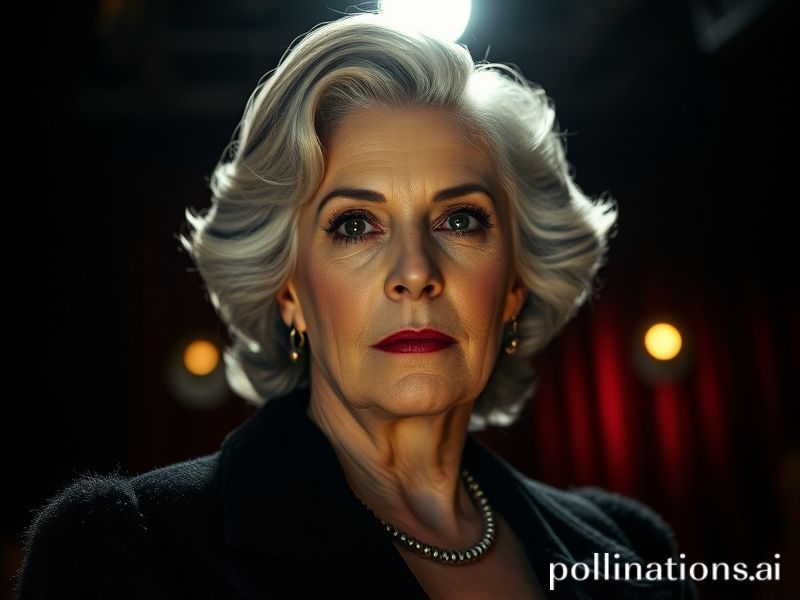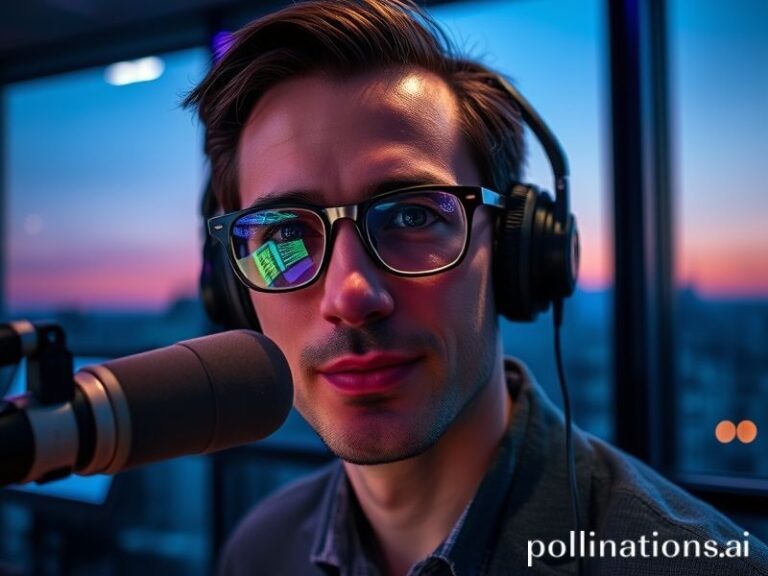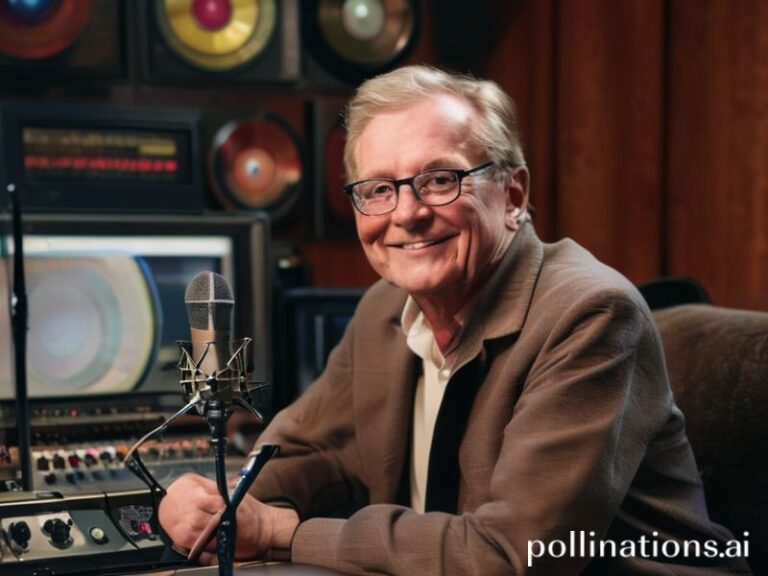Glenn Close: The World’s Most Diplomatic Prophet of Doom
Glenn Close, the woman who has made a career of staring into the abyss until the abyss politely asks for an autograph, turns out to be our most reliable global barometer of how spectacularly we’re failing as a species. From her perch in whatever time zone currently hosts the nearest film festival jury, she has spent four decades embodying the precise temperature of planetary dread. If Close is playing a nanny who bakes poisoned cookies, you can bet the Western world is fretting about the collapse of the nuclear family. If she’s a military general in space fatigues, rest assured the Doomsday Clock has nudged another millisecond toward midnight. Watching her career is like reading tea leaves, except the tea has been replaced by hemlock and the cup is chipped.
Consider the international timeline. In 1987, while the Berlin Wall still wore its graffiti like smug eyeliner, Close gave us Alex Forrest in Fatal Attraction. The film was exported to 62 countries, each translation adding a local flavor of marital panic: French critics called it a parable of late-capitalist loneliness, Japanese audiences saw it as a cautionary tale about importing American workaholism, and Italian distributors simply retitled it “Don’t Answer the Phone, Marco.” Overnight, rabbits everywhere began checking their life insurance policies. The lesson was clear: globalization was not only shipping Coca-Cola and blue jeans across borders; it was also delivering the universal fear that your one-night stand might move into your saucepan.
Fast-forward to 2011 and Albert Nobbs, shot in Dublin with a pan-European crew and financed by a tax-incentive daisy chain worthy of the Cayman Islands. Close, buried under prosthetics so convincing they could qualify for their own passport, portrayed a 19th-century woman passing as a male butler to survive economic cannibalism. The film premiered at the Toronto International Film Festival, where it was politely applauded by people wearing lanyards thick enough to double as nooses. Critics from Buenos Aires to Mumbai praised its “quiet dignity,” which is international code for “bleak enough to make you skip dessert.” Once again, Close had located the pulse of the moment: gender anxiety, income inequality, and the timeless human tradition of pretending to be something else in order to pay rent.
Her Oscar-nominated turn in 2017’s The Wife is perhaps the most diplomatically devastating. While UN delegates in Geneva were drafting strongly worded memos about gender parity, Close delivered a masterclass in silent marital sabotage set against a backdrop of Scandinavian snow so white it looked like a surrender flag. The film grossed modestly in the U.S. but exploded in South Korea, where ticket sales outpaced every superhero franchise for three weeks. Seoul audiences apparently recognized the universal spectacle of a woman applauding her husband for work she ghost-wrote—proof, if any were needed, that resentment travels faster than Wi-Fi.
Off-screen, Close has become an accidental NGO. Her Bring Change to Mind campaign against mental-health stigma now operates on five continents, meaning she’s personally responsible for more international summits on depression than most European monarchies. Last year in Nairobi, a local radio host introduced her as “the woman who scared Michael Douglas before our roads scared him,” which is both geographically inaccurate and spiritually precise.
What does it all portend for our wobbling planet? Simply this: wherever Glenn Close’s next character appears—be she Supreme Court justice, cartel accountant, or animated squid voiced in Dolby Atmos—she will already know our secrets. She will tilt her head, smile that micro-smile, and we will recognize ourselves in her pupils: ambitious, exhausted, and running a con that we pray won’t be exposed before the credits roll. The abyss, after all, has learned to speak fluent Close; the rest of us are still fumbling with phrasebooks.







